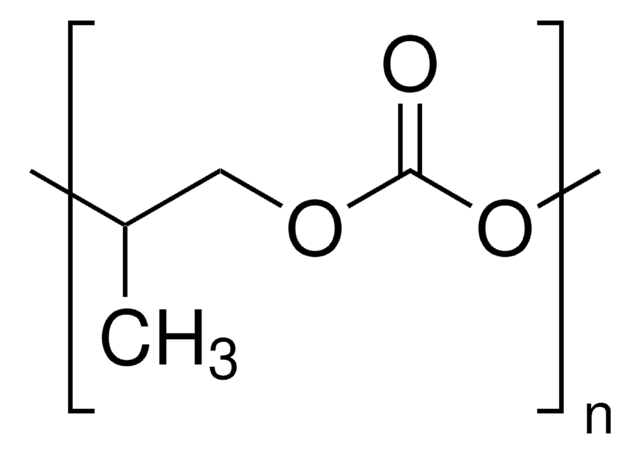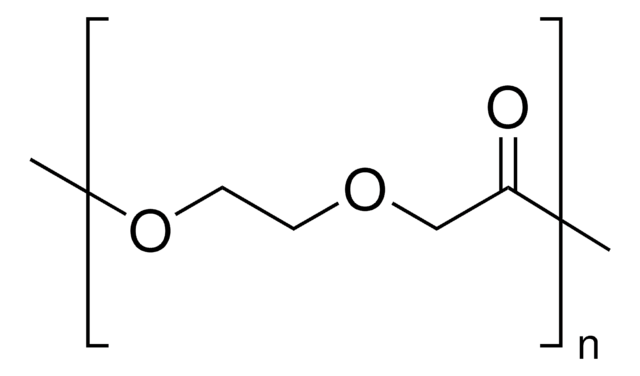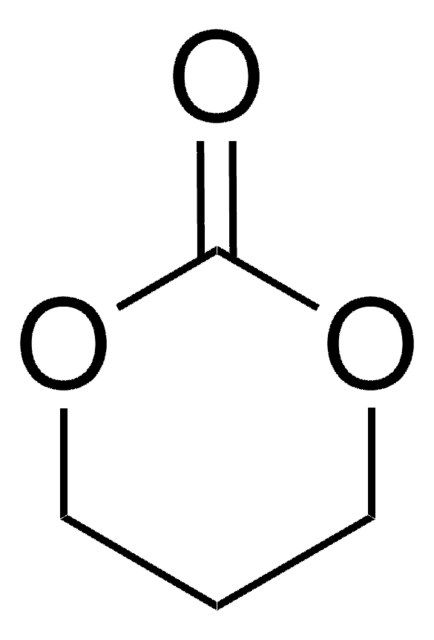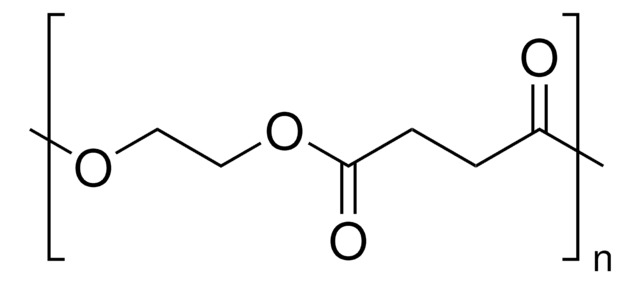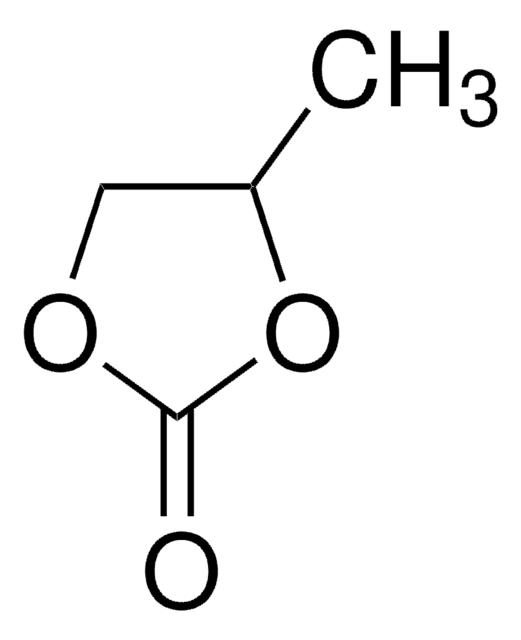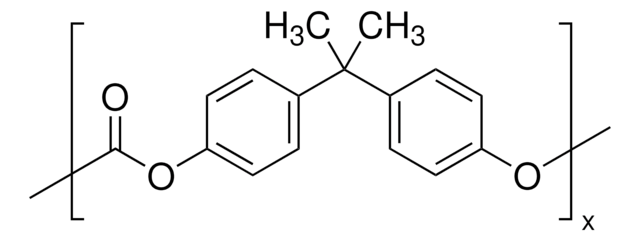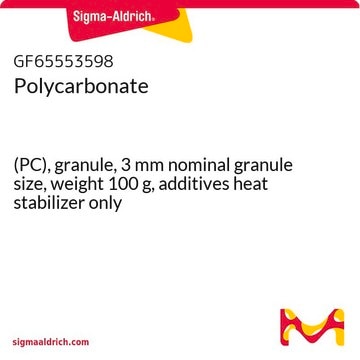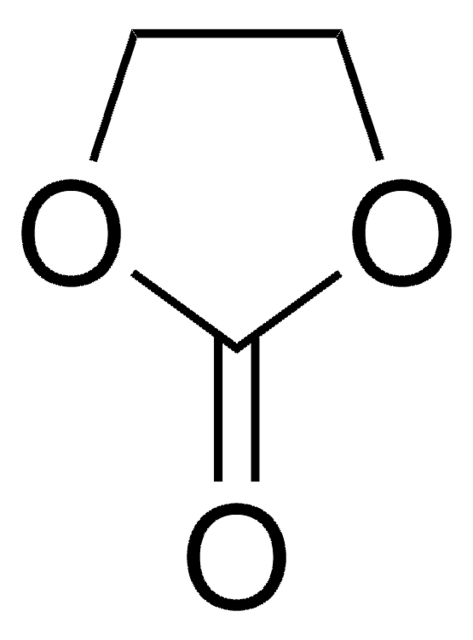900293
Poly(trimethylene carbonate)
viscosity 1.75 dL/g
Synonym(s):
Poly (TMC)
Sign Into View Organizational & Contract Pricing
All Photos(2)
About This Item
Linear Formula:
CH3(C4H12O3)nCH3
UNSPSC Code:
12162002
NACRES:
NA.23
Recommended Products
Related Categories
Application
- Fabrication of Photo-Crosslinkable Poly(Trimethylene Carbonate)/Polycaprolactone Nanofibrous Scaffolds for Tendon Regeneration.: This study explores the development of photo-crosslinkable nanofibrous scaffolds using Poly(trimethylene carbonate) (PTMC) and Polycaprolactone for tendon regeneration, demonstrating the potential of PTMC in biomedical applications (Li et al., 2020).
- Fabrication of poly (trimethylene carbonate)/reduced graphene oxide-graft-poly (trimethylene carbonate) composite scaffolds for nerve regeneration.: This article investigates composite scaffolds made from PTMC and reduced graphene oxide for nerve regeneration, demonstrating significant advancements in biocompatible and biodegradable materials (Guo et al., 2019).
- Comparison of Poly(l-lactide-co-ɛ-caprolactone) and Poly(trimethylene carbonate) Membranes for Urethral Regeneration: An In Vitro and In Vivo Study.: This research compares PTMC and Poly(l-lactide-co-ɛ-caprolactone) membranes for urethral regeneration, providing insights into the biocompatibility and effectiveness of PTMC in resorbable medical devices (Sartoneva et al., 2018).
wgk_germany
WGK 3
flash_point_f
Not applicable
flash_point_c
Not applicable
Certificates of Analysis (COA)
Search for Certificates of Analysis (COA) by entering the products Lot/Batch Number. Lot and Batch Numbers can be found on a product’s label following the words ‘Lot’ or ‘Batch’.
Already Own This Product?
Find documentation for the products that you have recently purchased in the Document Library.
Sai Cheng et al.
Current gene therapy, 19(6), 395-403 (2020-02-20)
In order to generate induced Pluripotent Stem Cells (iPSCs) more efficiently, it is crucial to identify somatic cells that are easily accessible and possibly require fewer factors for conversion into iPSCs. Human epidermal melanocytes were transduced with lentiviral vectors carrying
Junxiong Qiu et al.
Biomaterials science, 8(11), 3147-3163 (2020-05-05)
Aseptic loosening (AL) caused by wear particles released from implant surfaces is one of the main causes for the failure of artificial joints, which is initiated by macrophage inflammatory responses. Emerging evidence suggests that the member of a broad-complex, tramtrack
Maya Abdallah et al.
ACS applied materials & interfaces, 11(36), 32623-32632 (2019-08-20)
Chronic kidney disease is characterized by a gradual decline in renal function that progresses toward end-stage renal disease. Podocytes are highly specialized glomerular epithelial cells which form with the glomerular basement membrane (GBM) and capillary endothelium the glomerular filtration barrier.
Our team of scientists has experience in all areas of research including Life Science, Material Science, Chemical Synthesis, Chromatography, Analytical and many others.
Contact Technical Service